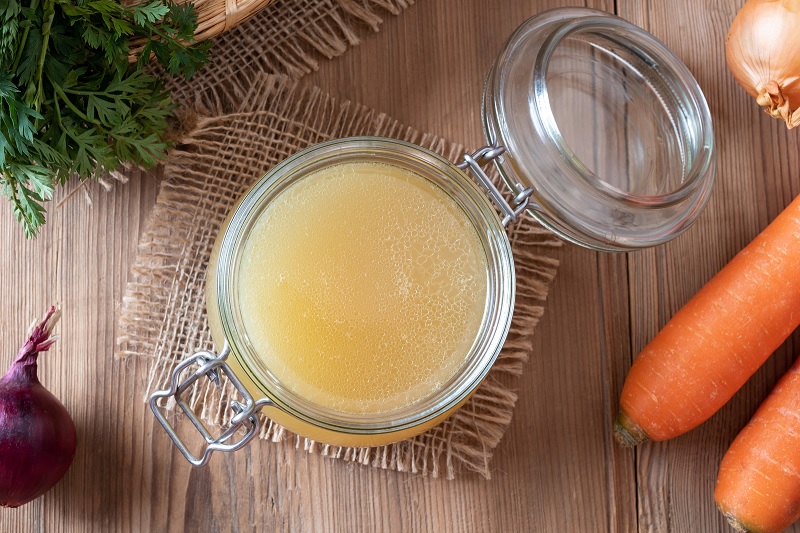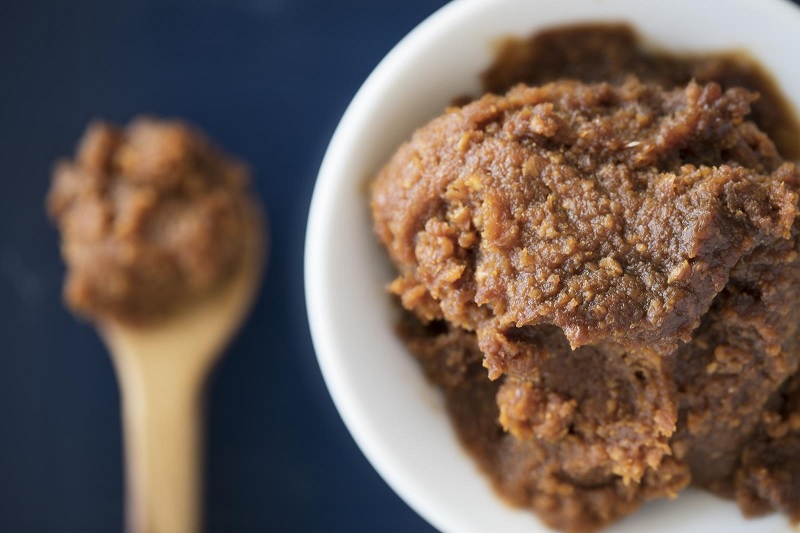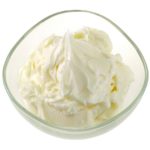Many store-bought vegetable bouillon powders can be harsh on the palate, as they contain a lot of sodium, as well as other preservatives and additives. This can often result in an unnaturally salty effect in your food.
You might also be cooking a recipe that calls for vegetable bouillon powder but not have any in the cupboard, and be wondering what else you can use.
So, if you’re umming and ahing over what you can use as a substitute for vegetable bouillon powder, this article delves into what’s on offer.
Vegetable Bouillon Alternatives
1. Vegetable stock cubes
Vegetable stock cubes are essentially the same thing as vegetable bouillon powder, they have simply been formed into cubes. If you are following a recipe that mentions bouillon powder, you can crush stock cubes and treat it as if it was powder, measuring out the amount you need according to the recipe.
2. Vegetable broth/liquid stock
One of the most obvious vegetable bouillon powder substitutes would be to make your own vegetable broth. This means you have full control over what goes into it, from the veggies you use to the seasoning.
You can make a big batch and freeze a portion for all of your bouillon needs, and use the remainder to make a delicious homemade soup.
This is a healthier and more tasty option, as you won’t be subjected to the preservatives and binding agents you might find in bouillon cubes.
It is also a much more cost-effective method than paying for ready-made bouillon.
3. Cooking wine
Using wine within cooking can be an easy and tasty way to infuse your food with additional flavour.
White wine pairs wonderfully with mushroom, fish, and chicken dishes (to name but a few), and of course, red wine, such as Merlot, enhances the flavour of red meat dishes.
Wine is a versatile product in cooking, so it can perfectly compliment numerous dishes, sauces, and desserts.
4. Seasoned water
A simple (and cheap solution) to substituting vegetable bouillon powder is seasoned water. This essentially just means water with salt, pepper and optionally extra ingredients in it.
Again, this allows you full control over the salt and pepper infusion. And you can add in a few other chosen ingredients, such as rosemary, butter, thyme, and even a scoop of Marmite!
5. Chicken stock/broth

Providing you’re not a vegetarian or vegan, using chicken stock or broth can be a delicious way to add extra flavour to your cooking. Especially if it’s homemade.
Chicken carcasses are a great base for your stock, as well as any vegetables (non-cruciferous) that need using up.
Chicken/bone liquid stock/broth is packed full of both flavour and nutrients, and can be a resourceful way of using up anything left over from your Sunday roast.
Again, you can make a big batch and freeze a few portions of it to keep your bouillon needs supplemented for a few weeks/months.
6. Marmite
Love it or hate it, Marmite’s flavour packs a punch! And it has so much more to offer than just being a good choice on top of your morning toast.
A teaspoonful of Marmite (or Bovril or Vegemite) in hot water and voilà! You have yourself a flavourful (and fully vegetarian/vegan) vegetable bouillon substitute.
Marmite is also packed full of vitamins and minerals, so this can be a healthier substitute than ready-made bouillons.
7. Miso paste

Like Marmite, Miso paste is something of an acquired taste, but it can also be instant flavour infusion in vegetarian or vegan dishes, such as soups, risotto, and many eastern dishes.
It also acts as a thickener too. And like Marmite, a little goes a long way.
Non-Bouillon Thickening Agents (That Are Vegetarian/Vegan)
If you’re making your own vegetable and want to thicken it to meet the required consistency, here are a few vegetarian/vegan ways of doing so:
- Cornflour mixed with water. You’ll want it to have a paste-like consistency for it to be fully effective. Mix it into your broth/stock while it’s still on the hob.
- Xanthan gum
- Oetker Vege-Gel
- Coconut flour
- Guar gum
- A veggie/vegan Bechamel/Roux – flour, water, and vegan butter.
Bouillon Powder vs Stock Cubes – What’s the Difference?
You may notice while perusing the stocks and condiment section of the supermarket aisle that there are multiple options: powders, cubes, and even jellied stocks, and you may be wondering if there’s some magical difference between bouillon powder and stock cubes… well, there isn’t.
Stock cubes tend to be more popular in domestic cooking, whereas powder is more popular in commercial cooking. Bouillon powder is also more popular in the USA than the UK, so you’re more likely to find it in American recipes.

Clara is a freelance writer and former chef. Though she may have hung up her apron, her love of food and cooking is still going strong! When she’s not whipping up a verbal storm, she’ll be in her kitchen sipping wine and whipping up a culinary storm.







